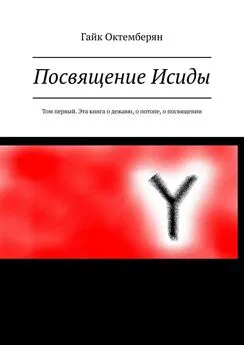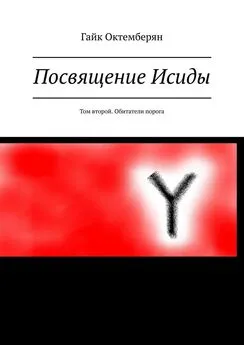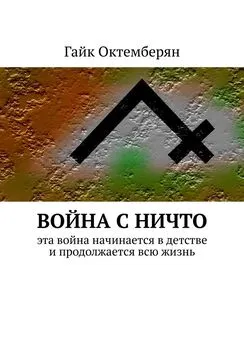Гайк Демоян - Турция
- Название:Турция
- Автор:
- Жанр:
- Издательство:неизвестно
- Год:неизвестен
- ISBN:нет данных
- Рейтинг:
- Избранное:Добавить в избранное
-
Отзывы:
-
Ваша оценка:
Гайк Демоян - Турция краткое содержание
В исследовании рассматриваются аспекты турецкой внешней политики в отношении Карабахского конфликта в историческом и современном измерении. На основе широкого фактологического материала анализируется проблема Нагорного Карабаха в контексте армяно-турецких отношений и новой внешнеполитической доктрины неопантюркизма. Отдельно анализируются турецкие инициативы, направленные на обеспечение проазербайджанской позиции в разрешении конфликта, внутритюркские разногласия вокруг карабахской проблемы, фактор религиозной солидарности, а также распространения сети международного терроризма в Азербайджане вследствие вербовки наемников из исламских стран. Книга рассчитана на экспертов, студентов и исследователей, изучающих Карабахский конфликт, внешнюю политику Турции, а также на широкий круг читателей
Турция - читать онлайн бесплатно полную версию (весь текст целиком)
Интервал:
Закладка:
«Турецкий след» в Карабахском конфликте – как в историческом отношении, так и с современных позиций – ясно показывает, что Турция, даже будучи региональной державой, не имеет никакого морального права быть задействованной в процессах его разрешения.
6 «Декларация о принципах международного права, касающихся дружественных отношений и сотрудничества между государствами в соответствии с Уставом Организации Объединенных Наций», принятая 24 октября 1970 года, см. http://www.un.org/russ-ian/documen/gadocs/convres/r25-2625.pdf
Summary of the volume
"Turkey and the Karabakh Conflict in 1990s: a Comparative Historical Analysis"
Rooted in recent history, the Armenian-Azerbaijani conflict around Nagorno-Karabakh originated at the time when Turkic-speaking nomads began to migrate into the West of the South Caucasus. The national identity of Azerbaijanis evolved in a clash of geopolitical interests between great powers striving to establish their control over Baku oil reservoirs. Since then, Azerbaijan gained strategic importance; the historically Armenian-populated Karabakh, both highland and lowland, and Nakhichevan were used as bargaining chips in exchange for the loyalty of Azerbaijani leaders.
The present conflict can be viewed as one between the newly emerged Azerbaijani state and national identity on one side, and the historically formed Armenian identity, on the other. The conflict also has economic, political and cultural aspects, described in numerous publications in the field of conflict studies.
The current Turkish approach to the Nagorno-Karabakh conflict has many parallels in history. Pursuing the realization of ambitious pan-Turkist policy during the World War I, the Young Turk government had implemented its deplorable genocidal plan of annihilating Armenians throughout the Ottoman Empire and was set to occupy the Russian Transcaucasus in order to establish a link with Turkic-speaking communities in the Russian Empire. As a result of the occupation, the new Azerbaijani state was created under the aegis of the Ottoman military leadership aiming to secure the geopolitical interests of Turkey based on the idea of ethnic and religious solidarity.
The chiefly Armenian-populated Highland Karabakh (Nagorno-Karabakh) stood in the way of Turkey's expansionist policies. After Turkish troops captured Baku and massacred over 10,000 Armenians, they went on to occupy Karabakh. Spreading terror in the region and persecuting the Armenian population, the Turkish occupation government of Azerbaijan was met with a strong resistance of local Armenian self-defense units. In 1919 and 1920 Azerbaijani Turkish troops massacred another 15,000 Armenians in Shushi, the main city of Nagorno-Karabakh.
After the withdrawal of Turkish troops from the South Caucasus as a result of defeat in WWI, the "Turkish factor" continued to exist in Azerbaijan, since thousands of Turkish officers and soldiers were recruited to the Azerbaijani army and actively participated in the military operations of Azerbaijani army against Armenians in Karabakh.
[стр. 225] Turkey and the Karabakh Conflict in 1990s: a Comparative Historical Analysis
The new phase of confrontation started in February 1988, when the local Council of People's Deputies of the Nagorno-Karabakh Autonomous Oblast (NKAO) passed a resolution appealing to the Supreme Councils of Armenia, Azerbaijan and the USSR, asking for NKAO to be handed over to the jurisdiction of the Armenian Soviet Socialist Republic.
In the early stage of the conflict, Turkey adopted a very cautious attitude towards the conflict, fearing a possible negative reaction from the Soviet government. A month before the collapse of the USSR, Turkey secured its role as protector of Azerbaijan by becoming the first country to officially recognize its independence.
After the breakup of the USSR in early 1990s, the pan-Turkist ambitions in Turkey were revived once again, striving to push Ankara to a new geopolitical role. Stressing Turkey's ethno-linguistic, cultural and historical proximity with Azerbaijan and the Turkic republics of Central Asia, Turkish leaders got actively involved in promoting the establishment of a Turkic confederation under the leadership of Turkey.
The Turkic factor was clearly one of the various factors affecting the Nagorno-Karabakh conflict. Several Turkic-speaking countries were involved in efforts both to resolve the conflict and to. escalate it; the latter was especially evident in the case of Turkey's pro-Azerbaijani position.
Taking into consideration the many facts and factors of Turkish interference in the zone of the Karabakh conflict, it should be stated that Turkey, openly supporting Azerbaijan in its war against Nagorno-Karabakh and Armenia, was party to the conflict rather than to its solution. The Turkish involvement in the conflict included the following components:
• threats of military intervention, pressure through display of force,
• implementing the transportation and energy blockade of Armenia,
• providing military support to Azerbaijan,
• developing initiatives directed at the formation of an anti-Armenian coalition and information isolation of Armenia,
• lobbying Azerbaijani interests in international organizations.
Both Azerbaijan and Turkey have been trying to present the conflict as a confrontation of "Turkic brothers" with Armenians so as to win the support of Turkic republics of Central Asia. Turkey joined the Azerbaijan-initiated economic blockade of Armenia and rejected Armenia's proposition to establish diplomatic and trade relations. Ankara's preconditions on establishing ties with Armenia were that Armenia should
• discontinue its support of efforts to achieve international recognition of Armenian genocide;
• renounce territorial claims to Turkey,
• withdraw its troops from Azerbaijan and recognize Azerbaijani sovereignty over Nagorno-Karabakh.
[стр. 226] Summary
History became one of the main obstacles to the establishment of mutually beneficial relations. The key issue here is Turkey's denial of the historical fact of the Armenian Genocide. One of the initiatives aimed at aborting the international recognition of the Genocide had been the Turkish Armenian Reconciliation Commission established in 2001.
In 1992-1994, Turkish leaders regularly made aggressive statements threatening a military intervention into Armenia.
With the successes of Armenian troops in Karabakh, the option of a military intervention into the conflict was widely discussed in Turkish political and military circles. However, in May 1992 a very sharp reaction followed from Moscow: the Chief of General Staff of the Joint CIS Force warned Turkey that such action could unleash a global war. Forced to give up the idea of a military intervention, Turkey continued to provide military as well as economic aid to Azerbaijan. Turkey's support of Azerbaijan was intended, amongst other things, to show its commitment to promoting and protecting Turkic nations and communities. As further proof, the Turkish army and intelligence services launched undercover operations to supply Azerbaijan with arms and military personnel. According to Turkish sources, over 350 high-ranking officers and thousands of volunteers from Turkey participated in the warfare on the Azerbaijani side. Western authors reported several major shipments of weapons from Turkey, including brining an arsenal of Soviet-made arms from former German Democratic Republic (GDR).
Meanwhile Turkish generals were involved in planning battles through a joint effort of the Turkish and Azerbaijani General Staffs. Though negligible compared to Turkey's potential, and implemented in a covert fashion, Turkish military support should not be underestimated in terms of its impact on the Nagorno-Karabakh conflict.
Some Turkish moves against Armenia were openly militaristic and aggressive. These included threats to use force; display of force; use of force; blockading Armenia; opening fire at Armenian territory etc.
From 1991 to 1993, the presidents of Central Asian republics made repeated attempts to promote a peaceful resolution of the Karabakh conflict. Kazakhstan's President Nursultan Nazarbayev together with Boris Yeltsin organized a meeting between the presidents of Armenia and Azerbaijan in the Russian city of Zheleznovodsk. In summer 1992, Nazarbayev came up with a new mediation initiative. However, just as previous initiatives, this one also failed to bring about a peace agreement.
Alongside military initiatives, Turkey undertook very active diplomatic activities and lobbying in the international organizations; in bilateral and multilateral negotiations, it promoted a pro-Azerbaijani bent of mediation and conflict resolution efforts.
[стр. 227] Turkey and the Karabakh Conflict in 1990s: a Comparative Historical Analysis
Turkey's new interstate-level initiative was to organize 'Turkic Summits' for Turkic nations (Azerbaijan, Kazakhstan, Kyrgyzstan, Turkmenistan and Uzbekistan) during the first of which both Turkey and Azerbaijan tried to convince the leaders of Central Asian Turkic republics to adopt a joint statement condemning Armenia's policy in Nagorno-Karabakh, and to sever economic relations with Armenia.
Despite all the pressure, the leaders of Central Asian states refrained from any anti-Armenian initiatives, partly due to their membership in CIS Collective Defense Agreement, and partly to a general pragmatic approach which made them want to keep clear of a conflict happening thousands of miles away. Amongst other things, they declined a joint Turkish-Azerbaijani proposition of imposing an embargo on Armenia.
Because of inter-Turkic discord, the Second Turkic Summit scheduled to take place in Baku in 1993 was only held in Istanbul in October 1994. The final declaration of the Summit only mentioned the need to resolve the Karabakh conflict in accordance with the resolutions adopted by the UN Security Council. It should be noted that Azerbaijan failed to get the support it expected from the Turkic republics of Central Asia since the latter were unwilling to damage their relations with Armenia and Russia. The political leadership of Turkic states of Central Asia adopted a very flexible and pragmatic stand, keeping a safe distance from the excessively politicized project of an "All-Turkic Union". The failure of Turkey's initiatives marked a turning point in the relations between Turkey and the Turkic republics of the former USSR, paving the way for a more realistic approach to establishing political and economic relations.
Relations between Turkic republics were further hindered by the tensions between Turkey and Azerbaijan ensuing from Turkish involvement in the attempted coup d'etat in Azerbaijan against President Heydar Aliyev. Azerbaijan and Turkmenistan also had a point of dispute: the ownership of several oil fields in the Caspian Sea.
Though a secular state, Turkey was heavily involved in the diplomatic activities among Islamic states, and particularly in meetings of the Organization of Islamic Conference (01C). Trying to add more Muslim countries to the ranks of the anti-Armenian coalition, Turkey was actively involved in the drafting of OIC statements that condemned Armenia. Another setup for lobbying in favor of Azerbaijan in an Islamic context was the Organization for Economic Cooperation of which Iran, Turkey, Pakistan and Central Asian Republics were members.
Читать дальшеИнтервал:
Закладка:
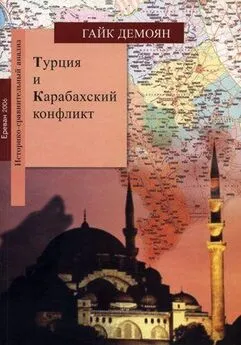

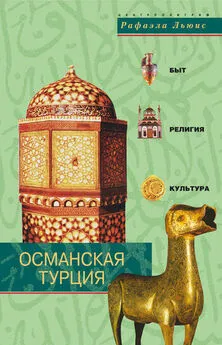
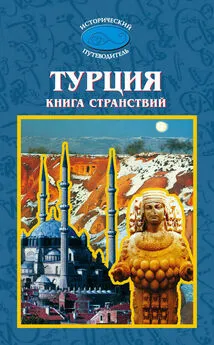
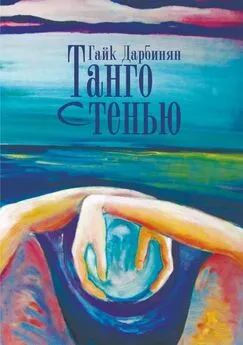
![Невилл Форбс - История Балкан [Болгария, Сербия, Греция, Румыния, Турция от становления государства до Первой мировой войны] [litres]](/books/1061149/nevill-forbs-istoriya-balkan-bolgariya-serbiya-gre.webp)
